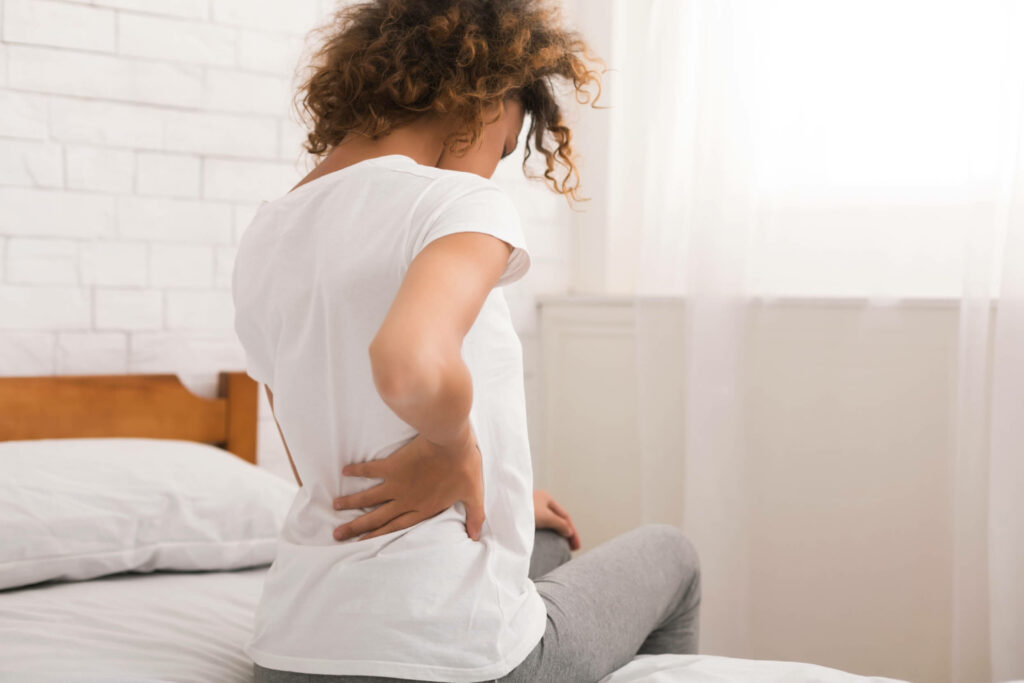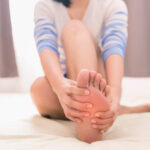An aching body makes every life activity more difficult, from getting through your daily grind to going to sleep at night. Many times, our bodies ache from hard work or exercise, but in some cases, body aches can be more complex. They can have causes that aren’t benign.
If you or someone you know has been suffering from body aches, this guide can help you understand some of the underlying problems that may be causing the discomfort and set you on the path to treatment.
Read on to learn about the most common causes of strange body aches, why your body responds to pain, and how to get relief…
1. It Might Be Arthritis

You don’t have to be old to have arthritis; younger people can develop it, too. This disorder tends to cause pain and stiffness after periods of inactivity and morning stiffness that lasts over an hour. There is typically pain, swelling, and tenderness in or around the joints.
Ease the aching: Visit your doctor to determine whether it is arthritis that could be wreaking havoc on your joints. He or she may recommend lifestyle changes and prescribe medications like analgesics, NSAIDs, or corticosteroids. Surgery may be necessary in severe cases.
2. You Could Be Dealing with Fibromyalgia

Widely misunderstood but fairly common, fibromyalgia is characterized by widespread pain in the bones, muscles, and ligaments. This affects about 10 million Americans. Most people with fibromyalgia (the bulk of whom are women) also experience chronic fatigue.
Ease the aching: If a blood test confirms fibromyalgia, your treatment plan will likely include taking OTC pain relievers, antidepressants (to help you to relax and sleep), and anti-seizure drugs (also to alleviate pain). Physical or occupational therapy may be required.
3. Your Body May Be Fighting Lupus

Lupus is tricky to diagnose, but most people with this autoimmune disease experience achy joints and swelling. Other symptoms to look out for include extreme fatigue, headaches, fever, a butterfly-shaped rash across the cheeks, and Raynaud’s phenomenon (a condition in which the fingers and toes feel very cold or even change color).
Ease the aching: Depending on your body’s specific reaction to the disease, your doctor may prescribe medications to help you manage symptoms, including NSAIDs to treat pain and swelling, antimalarial drugs to reduce flare-ups, corticosteroids to fight inflammation, and immunosuppressants to suppress your immune system.
4. Mononucleosis Could Be the Cause

Generally caused by the Epstein-Barr virus (EBV), mono is a type of infection common among teenagers and young adults, usually transmitted through saliva. The symptoms of mononucleosis include fatigue, a sore throat, body aches, fever, and swollen lymph nodes.
Ease the aching: Getting rest, drinking plenty of fluids, and taking over-the-counter pain relief drugs will normally relieve the symptoms of mononucleosis. Secondary infections that develop can be treated with antibiotics, although experts recommend avoiding penicillin.
5. Perhaps a Tick Gave You Lyme Disease

Yep, something as tiny as a tick can be responsible for your body aches. Blacklegged ticks infected with Borrelia burgdorferi, to be exact. If you catch it early enough, muscle and joint aches probably won’t become severe, but they are early indicators of Lyme disease.
Ease the aching: If you suspect that you may have Lyme disease, seek medical treatment ASAP. The symptoms will only worsen over time and can lead to complications like heart problems and severe joint pain. If you test positive for Lyme, your doctor will prescribe antibiotics.
6. Cold and Flu Season Is in Full Swing

When you have the flu, your body aches because it releases chemicals to help fight off the infection. One of the chemicals produced by the immune system is a prostaglandin. Prostaglandin is an effective infection fighter, but it also causes body aches. It can bring on fever, too.
Ease the aching: Stay hydrated and get plenty of rest when you come down with a cold or the flu. This can speed up recovery significantly. If it is safe to do so with your health, you may also want to take over-the-counter medications like acetaminophen or ibuprofen for pain relief.
7. Maybe You Worked out Too Hard

Trying a new exercise (or even just working a muscle group that you may have ignored for a while) can make your body feel sore post-sweat. That muscle soreness that occurs a day or two after a hard workout is the result of small tears in your tissues and inflammation.
Ease the aching: Muscle soreness after exercising is usually nothing to be worried about; your muscles will heal and feel normal within a few days. Applying a heating pad and doing foam-roller exercises during your recovery period can help to speed up the process.
8. Are You Overusing One Part of Your Body?

Avoid continually using a specific part of your body unless it’s for medical reasons. Performing the same motion repeatedly with the same body part can cause muscles, ligaments, and tendons to become swollen and inflamed, resulting in uncomfortable aching.
Ease the aching: Strengthening exercises through physical therapy, wearing braces to keep the area stable, and occupational therapy can help get overused body parts to function normally again. However, prevention remains the most effective form of treatment.
9. You’re Possibly Stressed

Psychological or mental stress can have physical manifestations, from headaches to jaw pain to lower back pain. When you’re stressed, your body pumps out cortisol, which can amp up inflammation. This can lead to muscle breakdown, pain, and fatigue, among other symptoms.
Ease the aching: Take some time each day to do something that helps you unwind from your daily stressors. Just breathing deeply for a few minutes (or even meditating), taking a walk during your lunch break, or taking a hot bath after work can rejuvenate your body and mind.
10. Not Sleeping Soundly Can Cause Aches

Uninterrupted sleep is necessary for proper functioning and staying alert, as you may know. What you might not realize is just how much the body relies on sleep to remain ache-free. According to a recent study, disruptive sleep is the top predictor of widespread pain.
Ease the aching: To repair itself each day, the musculoskeletal system requires no less than 6 to 8 hours of sound sleep every night. The same goes for other vital bodily systems. Fortunately, there are many ways to sleep better at night if you struggle to stay or fall asleep.
11. Vitamin D Deficiency Also Causes Aches

Vitamin D deficiency is more common than once suspected and can cause subtle widespread pain that is often misdiagnosed. Vitamin D deficiency symptoms include aching of the muscles and bones, fatigue, weakness, and acute soreness after exercise that heals slowly.
Ease the aching: If there’s one supplement that you’re going to take to improve your health, let it be vitamin D. The benefits of taking vitamin D supplements, apart from pain relief and prevention, include stronger bones/teeth and protection against heart disease and cancer.
12. You Could Be Anemic

Anemia is a condition in which a person does not have enough healthy red blood cells to carry adequate oxygen to the body’s tissues. This can make the body feel quite fatigued and sore. You may also experience dizziness, palpitations, cold feet or hands, and other symptoms.
Ease the aching: If switching to an iron-rich diet (that includes leafy vegetables, lean meat, and nuts and seeds) and taking iron, folic acid, and vitamin B12 supplements doesn’t relieve symptoms, then see a specialist to determine the underlying cause of your anemia.
13. You May Have Sarcopenia

You could have sarcopenia if you’re finding that you can’t get up easily from a chair or screw the top of a jar. This degenerative condition can cause body aches and is marked by a loss of muscle mass and strength that affects balance, mobility, and stamina.
Ease the aching: The aches associated with sarcopenia can be relieved through exercise (resistance and strength training) and proper nutrition. Be sure to get adequate amounts of protein and omega-3 fatty acids. Certain drugs can also be helpful in treating sarcopenia.







